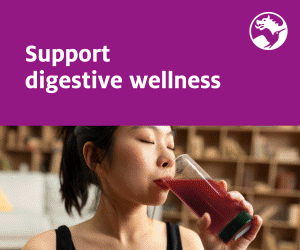The sports nutrition category in Europe, the Middle East and Africa (EMEA) is thriving; according to Innova Market Insights, it grew at a compound annual growth rate (CAGR) of more than 30% between 2016 and 2020.
Additionally, the future outlook is also strong. The health and wellness trend is a key driver, opening up new mainstream product development opportunities as consumers increasingly turn to this category for functional health and lifestyle benefits.
This blurring of category boundaries is expected to see the value of sports nutrition reach €35 million by 2025.
Strong EMEA growth
New product launch activity in sports nutrition, which includes bars, ready to drink (RTD) beverages, powders, protein-based RTDs and energy drinks, in EMEA grew at more than double the global rate, experiencing a 31.2% CAGR between 2016 and 2020.
Western Europe is a particularly strong market, accounting for 52.3% of global launches in 2020, with Eastern Europe in third place (ranked only behind North America).
With positive lifestyle associations that appeal to health-aware consumers, sports nutrition has firmly crossed over into more mainstream food and beverage categories. This has created new opportunities as well as new challenges to meet the demand for better tasting products; consumers expect the same great eating and drinking experience in sports nutrition as they do in wider food and beverage products.
What’s driving consumers to choose sports nutrition? Energy giving is ranked as the top priority (38%), but this is closely followed by health (37%). Consumers aren’t just looking for functionality, they also want great-tasting sports nutrition products with no added or reduced sugar claims that are convenient to use and reflect their on-the-go lifestyles and health concerns.

Although millennials are key purchasers, 17% reported they typically buy sports nutrition products when shopping; the changing lifestyle choices of all generations are influencing this blurring of boundaries.
Scrutiny of ingredient lists, demand for “no artificial” and “natural” claims and growing awareness of the health benefits of a vegan and meat-free diets are all driving change. In fact, 15% of millennials are already meat-free, according to a UK report on diet trends.
Ingredient choice and label claims need to reflect these lifestyle priorities and concerns. One way that companies can accomplish this is by incorporating plant-based protein, which delivers the desired functional health benefits while addressing the lifestyle choices associated with vegan diets and sustainability.
Expanding category opportunities
The impact of this broader appeal can be seen in sports nutrition product development trends. Sports powders remain the dominant subcategory, accounting for one in two sports nutrition launches in EMEA and continuing to grow.
However, RTD applications are expanding quickly, with protein-based RTDs showing the highest overall category growth for new products (+21.8% CAGR, 2016–2020) and launches of sports RTDs also increasing.
Diversification into new product types to access new demographics and markets is a strategy for success. Traditional sports nutrition brands are looking to boost their relevance and presents themselves to a broader audience, whereas large food and beverage companies are leveraging existing equity and establishing sports nutrition brands with crossover appeal.
Identifying on-trend claims that resonate with consumers has a positive impact on buying behaviours. Protein’s health halo is still firmly in place — high in protein/source of protein was the top positioning in 2020 and featured on more than 50% of launched products.
Plant-based protein is a key part of this trend and products launched with a vegan offering have increased significantly (+26% CAGR, 2016–2018). With a healthy, sustainably grown, alternative source of protein, these products meet the requirements of vegan, vegetarian and flexitarian diets.
No/low/reduced sugar claims are increasing, which reflects concerns about diabetes and weight management issues, as well as government initiatives to reduce sugar consumption.
These were the fastest growing positionings, up by +43% and +31%, respectively. Adding functionality to products is important and consumer expectations in this area are rising — with health-boosting benefits around immunity, fibre and better for you being sought.
Success is, however, about more than a label claim. Sports nutrition products now need to taste great too. As the crossover into mainstream continues, the emphasis on functionality versus form and eating experience no longer holds up. Consumers have the same expectations about product quality and eating experience in the sports nutrition category as they do for other applications.
Other categories are already incorporating functional ingredients that are traditionally associated with sports nutrition. The result is everyday products with sports-related health and nutrition claims, such as vitamin containing “energy boosting” cereals and high-protein yoghurts.
Taste, texture, flavour and nutritional profile all matter. Formulating great-tasting reduced sugar products using plant-based proteins can be challenging.
Overcoming the formulations challenges in sports nutrition
Sweetness quality: Maintaining the proper sweetness equivalence and mouthfeel is important when formulating calorie-reduced sports nutrition products.
For example, full-sugar energy drinks have a very high average sweetness level (a sugar equivalence of approximately 14), which makes achieving a clean and desirable full-bodied taste challenging when sugar is reduced.
A combination of sweeteners is usually required to ensure the right balance of texture and upfront sweetness (preferred by consumers) is formulated.
Through its stevia agronomy and innovation programmes, PureCircle offers next-generation stevia ingredients for a more sugar-like taste that are fully scalable to offer multiple cost-in-use options.
Easier to work with to reduce development times, next-generation stevia is opening up new and exciting reduced sugar opportunities. ERYSTA Erythritol is a polyol that enables manufacturers to achieve energy/sugar reduction and no added sugar claims in multiple applications, supporting functional build back and sweetness.

Of note, though, according to EU Regulation (EC) 1333/2008, erythritol is only permitted for use as a taste enhancer in flavoured drinks that are energy reduced or with no added sugars at a maximum level of 1.6%.
Stevia beyond sweetening: flavour modifiers: Sugar can be an easy way to cover up the off-notes derived from protein. When the goal is no added sugar, though, a system of ingredients must be developed to both mask any off-notes and deliver a taste profile as close to sugar as possible.
This requires a combination of ingredients, experience and technical expertise. Successfully formulating a product with no added sugar is about balancing the cleanest tasting high-potency sweeteners to take advantage of ingredient synergies to effectively reduce off-notes and achieve the desired sweetness.
PureCircle’s range of flavour modifiers offer sweetness quality improvements and suppress aftertaste and bitter off-notes, but they can also do so much more — boosting flavours and improving taste and mouthfeel.
Flavour modifiers can help formulators to create a broad spectrum of taste sensations across a range of applications — all with a “natural flavour” label too.
Plant-based applications: With the growing adoption of vegan, vegetarian and flexitarian diets, consumers are showing an increasing preference for recognisable ingredients with a natural origin.
Replacing artificial sweeteners and additives in no added sugar and energy reduced formulations with plant-based ingredients can improve a product’s label and its appeal.
Stevia is a powerful plant-based sweetener that is perceived as natural by consumers and can be used as part of a combination of plant-based ingredients to optimise sweetness in sugar reduction formulations.
VITESSENCE Pulse 1803 is a high-protein content pea isolate. It has a milder sensory profile compared with other pea protein isolates and enables manufacturers to formulate a broad range of protein-rich products in a variety of on-trend categories, including nutrition and sports bars, powders and RTDs.
Success in sports nutrition
For manufacturers to take advantage of the thriving sports nutrition category of today and tomorrow, it is vital that they address and overcome both consumer demand and formulation challenges to create market-accepted, innovative sports nutrition products consumers want, with the ideal taste, texture, nutritional appeal and functionality that they so crave.
Combining PureCircle’s global innovation and sugar reduction expertise with Ingredion’s industry leading formulation capabilities and broad ingredient portfolio, PureCircle by Ingredion helps food and beverage organisations of all sizes to develop consumer-winning products using ingredients that optimise sweetness, minimise calories, enhance taste and deliver great texture.




